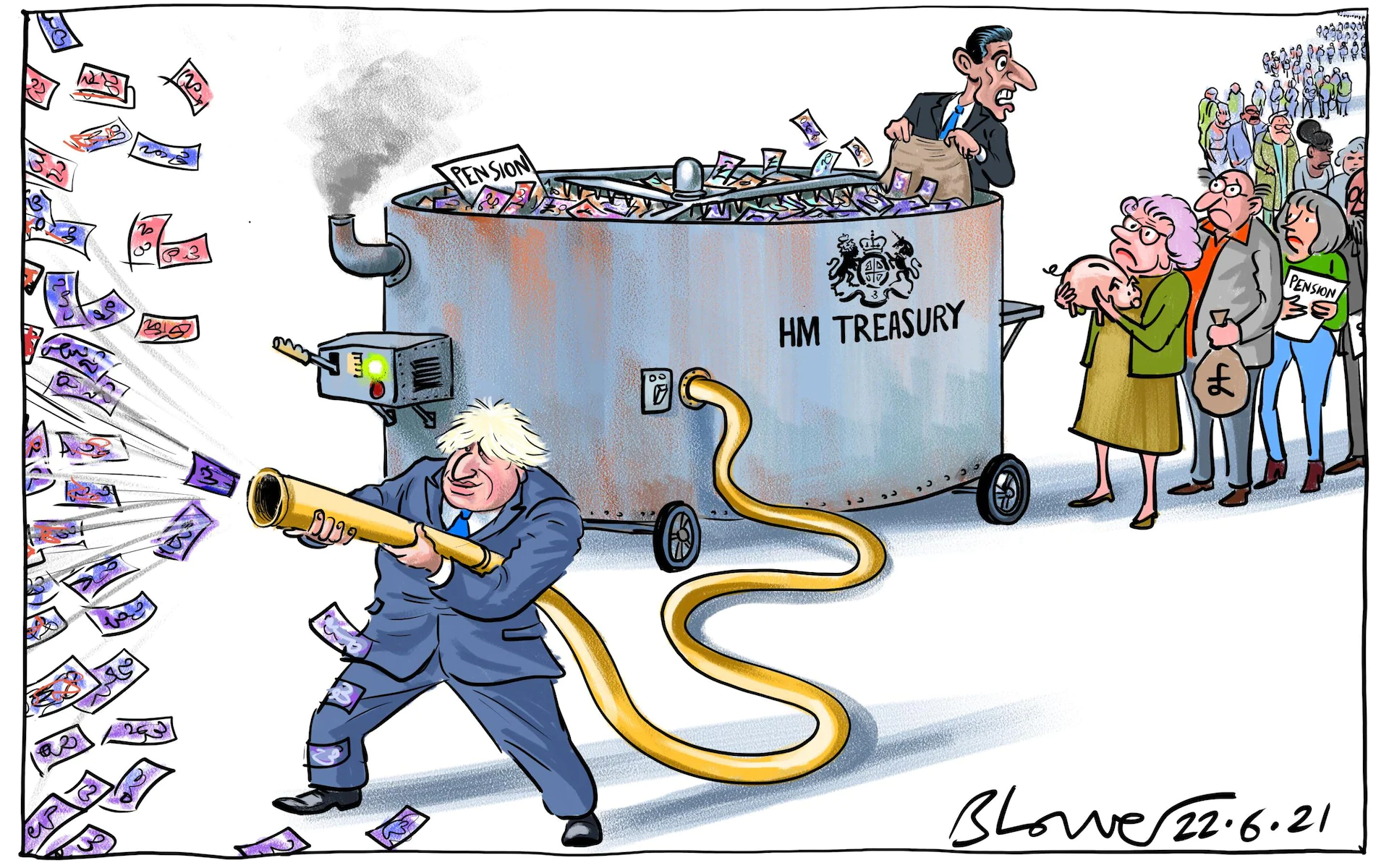There follows a guest post by David McGrogan, an Associate Professor of Law at Northumbria Law School.
With the so-called ‘pingdemic’ well underway, and showing no sign of abating, the question naturally arises: why are our politicians obsessed with finding technological ways out of the pandemic? What possessed them to imagine that ‘Test and Trace’ could ever be successful?
The proximate cause appears to have been an unholy alliance between Matt Hancock and Dominic Cummings, who looked at what had happened in South Korea and Taiwan and came to the bizarre conclusion that what had apparently worked there – in societies and circumstances totally unlike ours – could just be transplanted here and deployed as effectively. Whether this should be more properly be described as hubris or stupidity is a question I will leave to the reader to decide.
The problem, though, has much deeper roots. The Hungarian-French thinker, Anthony de Jasay, once made the observation (which, like all great observations, is deceptively simple) that there is a natural bias among politicians towards doing things. It takes a very special kind of person to get elected to national office and then resist using the power available to them. In fact, such a person may not exist at all – it is impossible to identify a leader even remotely resembling that type on either side of the Atlantic since, perhaps, Calvin Coolidge in the 1920s. Why do people decide to become politicians, after all? Because they want to do things.
The idea, then, that Boris and his Cabinet would have been able to simply sit there, apparently passively, while the virus ‘let rip’, was pretty implausible once the Chinese and Italians had gone into lockdown. The urge to do things would have been overwhelming. And it remains to this day. Letting the immune systems and common sense of the public take care of matters is anathema to our leaders, because it doesn’t involve them taking bold action or, indeed, doing anything much at all. This goes against the grain of their very psyches: in their own minds, they envisage themselves ‘winning’ in the war against Covid through their brilliant decision-making and uber-competence, and being hoisted onto the shoulders of the grateful populace and paraded through the streets accordingly. They don’t want nature to take the credit which they believe is theirs. In fact, it is pretty clear that they don’t really want the virus to reach natural equilibrium at all – they want to defeat it, preferably through some fabulous scheme.
The theorist of management, Brent Flyvberg, seeking to explain the attraction of politicians towards costly mega-projects (HS2s, Olympic games, Millennium Domes, HMS Queen Elizabeths, etc.), ascribed it to what he called four ‘sublimes’: the technological, political, economic and aesthetic. The technological sublime describes the sense of rapture associated with creating some technical, never-seen-before marvel; the political sublime refers to the attention and gratitude that accrues to politicians who build big; the economic sublime describes the sense of sheer delight which comes from spending vast amounts of money; and the aesthetic sublime refers to the pleasure that washes over everybody in the aftermath.
These sublimes all seem to have been at work in ‘Test and `Trace’ (and, indeed, in lockdowns in general) – doing something that has never been done before, getting lots of attention and spending huge sums doing it, and basking in the beauty of the achievement afterwards. Indeed, thinking of what has been going on since 2020 as a ‘megaproject’ akin to HS2 gets us quite close to the heart of the matter. After all, is there a politician alive in the U.K, today who is more attracted to megaprojects than Boris Johnson? Has there been a Prime Minister in the last 50 years who took more pleasure from throwing money at railways, roads, tunnels, and the like? Put in that way, his addiction to ‘Test and Trace’ seems very much of a piece with his character.
The important point about megaprojects, of course, is that they are often ruinously expensive and generally a bit rubbish. £37 billion has been allocated to ‘Test and Trace’, and it appears to have no effect whatsoever on viral transmission. The analogy with failed white elephant schemes like the Millennium Dome and (probably) HS2 is so obvious it almost goes without saying – but at least those endeavours didn’t involve food shortages, ruined holidays and weddings, and the end of our civil liberties.












To join in with the discussion please make a donation to The Daily Sceptic.
Profanity and abuse will be removed and may lead to a permanent ban.